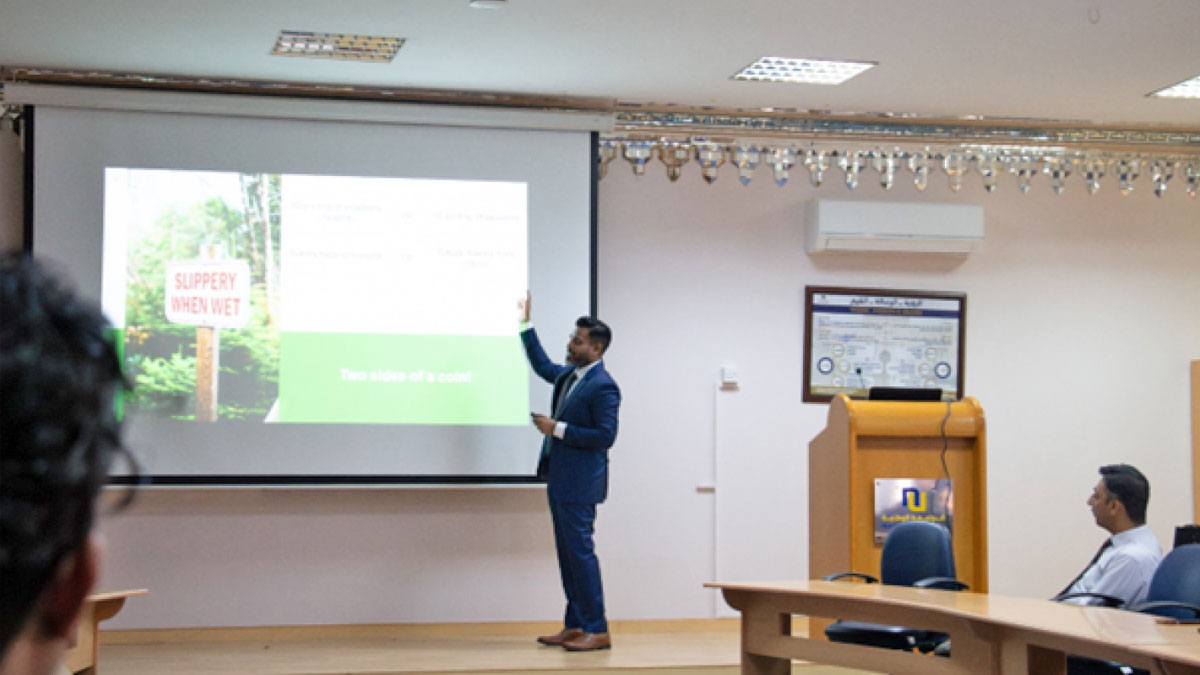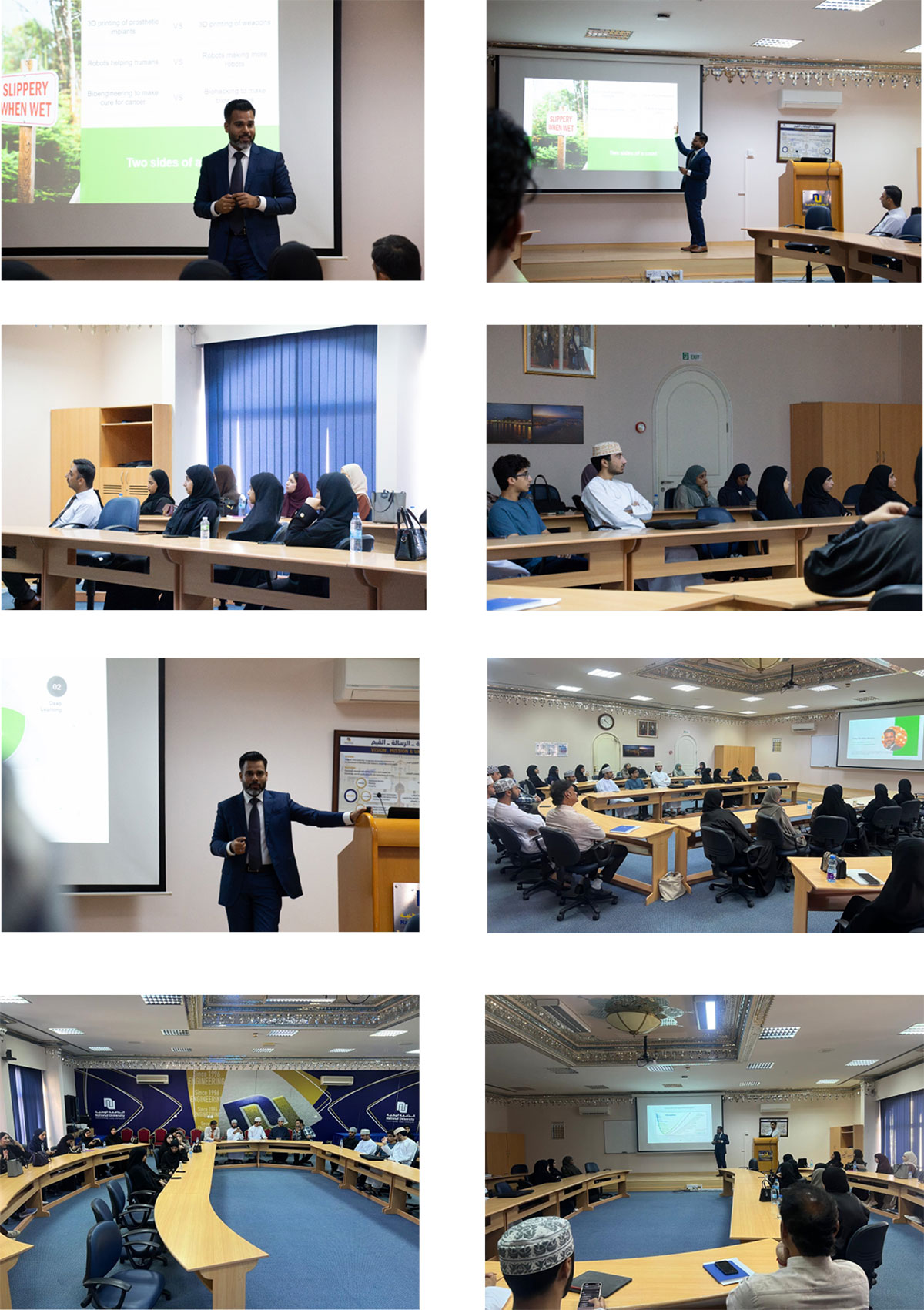Facilitator : Tomy Bonifas Bosco
Business Area Director at NORTAL
Head of Technology at KNOWLEDGE OMAN
Managed and successfully delivered national level digital transformation projects for tax, statistics, manpower, business register, healthcare and other government initiatives in Oman, UAE and Saudi Arabia. College of Advanced Technology College of Advanced Technology
Here’s a high-level plan for the proposed lecture on AI, tailored to engage and educate the first-year students on AI and its future in Oman. The elements that deepen their understanding of AI’s transformative potential and emerging technologies in the local context are included.
Phase 1: Introduction Lecture (1 Hour) (Tuesday, 5th November 2024)
Objective: Introduce students to the basics of AI, its applications, and what the future looks like with emerging technologies. Motivate students by aligning AI developments with relevant opportunities in Oman’s growing tech industry.
Outline: 1.
Introduction to AI:
Definition of AI and its subsets: Machine Learning, Deep Learning, and Natural Language Processing.
Key concepts in AI: data, algorithms, and computational power.
2. Applications of AI Today:
- Use cases across industries, including healthcare, finance, government, and transportation.
- Local examples, like Government Unified Platform of Oman’s and its potential for AI integration.
3. Future of AI & Emerging Technologies:
- How AI is driving the next wave of technology, such as IoT, blockchain, and robotics.
- Potential impact on Oman’s economy and industries (e.g., AI applications in oil and gas, smart cities, tourism).
4. Skills and Focus Areas for Students:
- Core skills: Data Science, Python programming, problem-solving, and AI ethics.
- Suggested focus areas: building foundational programming skills, gaining handson experience with AI tools, and understanding responsible AI practices.
5. Interactive Q&A and Discussion:
- Encourage students to share what excites or worries them about AI and emerging technologies.
- Address questions about career opportunities in AI within Oman.
Phase 2: Practical Lab Session (2 Hours) (Tuesday, 24th November 2024)
Objective: Familiarize students with AI products, tools, and platforms. Help them build a basic understanding of how to use these tools in a practical context.
Outline:
1. Setup and Introduction to Tools:
- Brief overview of AI tools students at CAT will be using (e.g., Google’s Teachable Machine for image recognition, ChatGPT for natural language processing, and nocode tools for mobile apps).
- Demonstrate how these tools work and discuss how they can be used without extensive coding knowledge.
Hands-On Practice: - Image Recognition Task: Guide students to upload images and train a simple model on Google Teachable Machine.
- Text Generation Task: Show students how to use ChatGPT for generating content or answering questions in an interactive way.
- No-Code Mobile App Development: Walk them through building a simple mobile app with no- code platforms. They could create something simple, like a recommendation app that uses AI- driven content generation.
3. Wrap-Up & Takeaways:
- Summarize the capabilities and limitations of each tool.
- Explain how no-code/low-code AI platforms are democratizing AI for everyone, including students without programming backgrounds.
Phase 3: AI Tool-Based Project (3 Weeks) (December 2024)
Objective: Encourage students to create a functional AI-based application using tools introduced in the lab session.
Project Details: 1. Task Description:
- Create a basic mobile application using no-code AI tools that serves a practical purpose (e.g., a travel recommendation app, language translation assistant, or virtual tutor). No human coding should be involved—only AI and no-code platforms.
- Provide them with specific tools or resources, such as Teachable Machine for any classification tasks, or AppGyver for mobile app creation.
2. Submission Requirements:
- A brief report explaining the app’s purpose and the steps taken to build it.
- Screenshots or a short demo video of the app in action.
- Reflection on challenges faced and insights gained during the process (Optional).
3. Evaluation Criteria:
- Creativity and Originality: Uniqueness and utility of the app idea.
- Execution and Completeness: How well the app functions.
- Reflection: Understanding of AI tool application and challenges.
Recommendations
- Contextualize with Oman’s Vision 2040: Highlight Oman’s digital transformation goals, especially in government, healthcare, and sustainable development. Explain how students could play a role in this journey through AI.
- Introduce Ethical AI Principles: Discuss the importance of responsible AI practices, focusing on ethics, fairness, and avoiding biases, particularly in sensitive areas like healthcare.
This approach combines foundational knowledge, practical experience, and applicationbased learning, empowering students to understand AI’s possibilities and inspiring them to think creatively about AI’s potential in Oman


